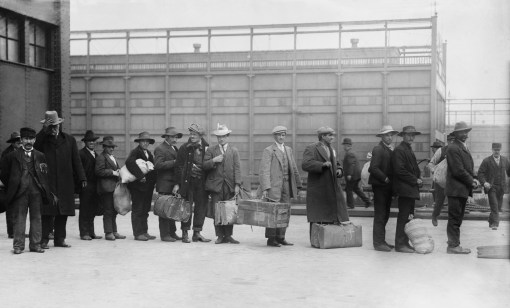The first major wagon train to the northwest departs from Elm
Grove, Missouri, on the Oregon Trail.
Although U.S. sovereignty over the Oregon Territory was not
clearly established until 1846, American fur trappers and
missionary groups had been living in the region for decades,
to say nothing of the Native Americans who had settled the
land centuries earlier.
Dozens of books and lectures proclaimed Oregon’s agricultural
potential, piquing the interest of white American farmers. The
first overland migrants to Oregon, intending primarily to farm,
came in 1841 when a small band of 70 pioneers left Independence, Missouri.
They followed a route blazed by fur traders, which took them west
along the Platte River through the Rocky Mountains via the easy
South Pass in Wyoming and then northwest to the Columbia River.
In the years to come, pioneers came to call the route the Oregon
Trail. The trail was heavily traveled until 1884, when the Union
Pacific constructed a railway along the route.




















